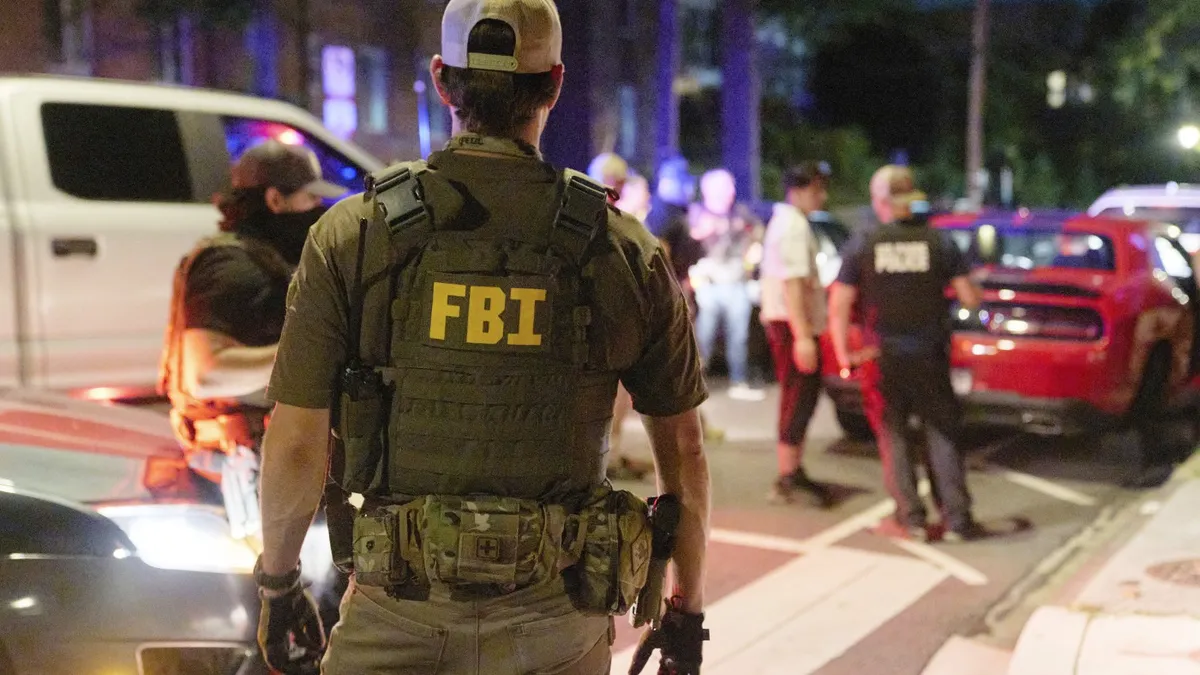
President Donald Trump's recent decision to take control of the Metropolitan Police Department (MPD) has sparked significant concern among law enforcement and community members alike. Retired U.S. Capitol Police officer Harry Dunn has voiced strong objections to this move, warning that it could severely damage the relationship between police and the communities they serve. During a Monday announcement, Trump revealed his plan to utilize the National Guard and MPD for at least 30 days to address issues such as violent crime, youth delinquency, and homelessness in Washington, D.C..
In his announcement, Trump controversially stated that police officers would be permitted to do "whatever the hell they want." Dunn, who ran for Congress as a Democrat last year, expressed deep concern regarding this statement during an interview on NPR's Morning Edition. "This kind of language is very problematic for police officers," he warned, explaining that it could provide a shield for officers with questionable practices, thereby undermining efforts to build trust within the community.
On Tuesday, dozens of National Guard troops were deployed in Washington, D.C. However, it's important to note that crime in the city had actually reached a 30-year low in the previous year, according to data released by MPD and the U.S. Attorney for D.C. Dunn, who served on the Capitol Police for 15 years and retired in 2023, underscored the irony of deploying military personnel when crime rates were declining.
During the interview, Dunn highlighted that many D.C. police officers may not possess the training necessary to effectively handle specialized situations, such as mental health crises or de-escalation scenarios. He pointed out that the approach taken by Trump is akin to using a hammer when a screwdriver is needed, emphasizing the need for nuanced policing strategies rather than heavy-handed tactics.
Reflecting on the events of January 6, 2021, when he helped protect the Capitol from a violent mob of Trump supporters, Dunn expressed frustration over the current deployment of troops. "When we were on the ground waiting for help, we felt abandoned," he recounted, noting that the President had the power to send assistance during the Capitol riot but chose not to until much later. "Now, he’s deploying the National Guard without a clear rationale, despite crime trending downwards."
Dunn's concerns extend to the implications of granting police more latitude to operate without oversight. "This approach gives bad apples cover to act without consequence, potentially violating individuals' rights," he warned. Such unchecked authority could erode public trust and lead to increased instances of police misconduct, which many communities are already grappling with.
The head of the D.C. Police Union, Gregg Pemberton, has praised the addition of National Guard forces, calling it a necessary stopgap to combat what he describes as "out of control crime." However, Dunn countered that the National Guard lacks the training needed for effective community engagement. "It's crucial to address crime, but we must ensure that the methods employed foster trust and respect between police and the community," he concluded.
As discussions about law enforcement strategies continue, it remains essential to prioritize transparency, training, and community relations to effectively address crime while maintaining public confidence in the police.